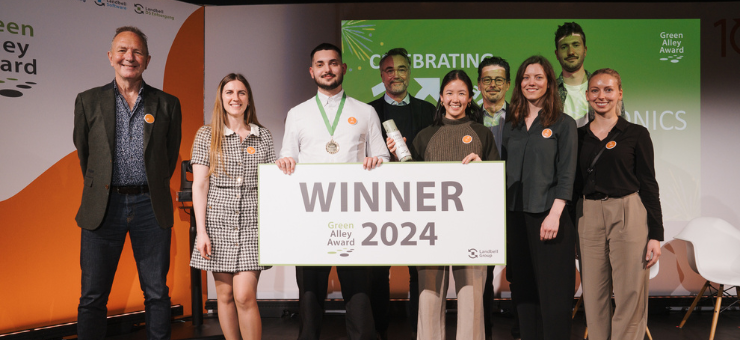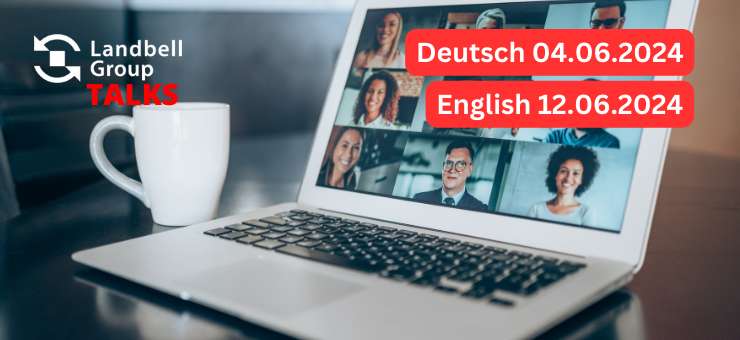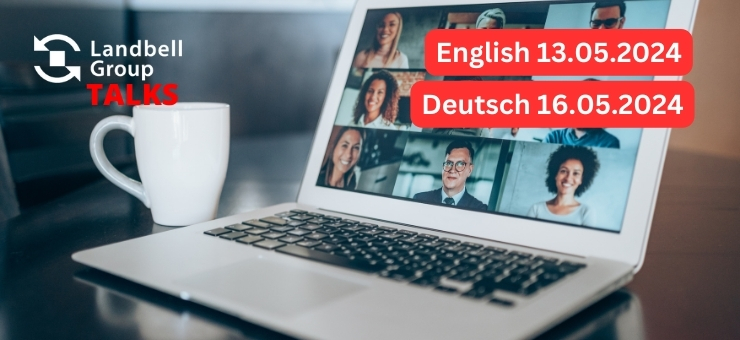11. July 2023
Share this
Lower Saxony/International. Siemer, Landbell and a joint venture between SABIC and Plastic Energy have notarised a strategic collaboration for the advanced recycling of packaging plastics moving toward a more closed loop model. With a new sorting plant in Vechta, Lower Saxony, A. Siemer – Entsorgungs GmbH reprocesses already sorted portions of post-consumer packaging and returns a significant volume of the sorting fraction, which is usually incinerated, to the recycling process. The plant is supplied by Landbell AG, and the newly recovered recyclable materials are processed in SABIC and Plastic Energy’s advanced recycling unit in the final stages of construction in Geleen, the Netherlands.
Innovative plant recovers sixty percent of sorting residues for recycling
Siemer’s unique processing plant in Vechta is a former sorting plant for light packaging that has been overhauled and redesigned for the pioneering purpose of recovering recyclable materials from previously non-recyclable or hard-to-recycle post-consumer waste. Now it re-sorts the fraction of packaging waste classified as low-grade using newly combined technologies and prepares it for chemical recycling. It is one of the first sorting plants that can separate dirt, foreign matter and impurities from the remaining plastic fractions. Its input capacity is 25,000 tonnes per year. The reprocessed waste plastic is delivered to SABIC and Plastic Energy’s advanced recycling unit, where it will be converted into pyrolysis oil using Plastics Energy’s advanced recycling technology. The pyrolysis oil, called TACOILTM, will then be processed by SABIC in a newly built hydrotreater plant to upgrade the pyoil and use it as alternative feedstock by SABIC to produce their flagship certified circular polymers, part of the company’s TRUCIRCLETM portfolio.
Long-term collaboration: “The path to one-hundred-percent recycling”
Chemical recycling promises the raw material recovery of composite plastics. SABIC, Plastic Energy, Siemer and Landbell are among the first players in the circular economy to bring together feedstock streams, technology, and know-how to implement chemical recycling in regular operations. In doing so, they are creating the conditions for a closed loop model for plastic packaging. “By optimally combining our capabilities, we ensure progress in the resource-saving use of plastics,” says Manfred Bruns, Managing Director of Siemer – Entsorgungs GmbH. “We are on the way to one hundred percent recycling. Strategic collaborations like this one are necessary to drive this forward-looking development of the circular economy. As a one-hundred-year-old family business, we are proud to contribute a small but fundamental part to this modern process.”
Uwe Echteler, member of the board of Landbell AG and COO of the DACH region, focuses on offering customer-specific recycling options and optimising the cycle for chemical recycling up to a closed product loop: “As a ‘first mover’, we are faced with the exciting task of finding the optimal composition of material streams for pyrolysis. We want to make a real contribution to resource conservation and with this project we can gain the necessary insights and offer initial product documentation.”
The model of this strategic partnership is currently singular in the circular economy. “We have created a unique cooperation from different points in the value chain,” says Rutger Bosch, Global Circular Economy Leader at SABIC. “We have demonstrated how to reinvent our business model by bringing together experienced operational partners that historically would not have worked together. Siemer convinced us with its quick action and rapid progress in the technical implementation. And Landbell secures the future expansion of our plant operations. With this new approach, we hope to show that advanced recycling has the potential to capture the value and bring back used plastic into new material streams.”
Plastic Energy emphasises the importance of the partnership with Landbell and Siemer for the recycling plant in Geleen. “Through the use of our advanced recycling technology, we are making great strides in building the circular economy in the Netherlands, and globally,” says Carlos Monreal, Founder and CEO of Plastic Energy. “This collaboration with Siemer and Landbell is important to the success of our joint recycling plant with SABIC in Geleen, providing optimal feedstock to be used in our recycling process.”
Source One – pioneer and connecting force
Both the planning and development of the processing plant in Vechta and the strategic linking of the players involved to create an economically attractive and resource-saving cycle were carried out by the operational consultancy Source One GmbH. Source One was able to contribute its three core competences of consultancy, development and procurement to create added value for each individual company in the new strategic collaboration. “We are very proud to have brought together the players involved and connected them through the development of a technological bridge,” says Kai Hoyer, Managing Director of Source One GmbH. “It was exciting to put a new technical concept on top of the conditions of an old LVP plant. The particular challenge was the short time frame in which we upgraded the existing plant. Now we look forward to further advancing the circular economy with similarly effective and sustainable solutions.”
Contact
Dr. Raffaela David
Head of Marketing & PR
E-Mail: r.david@landbellgroup.com
Phone: +49 152 56 405 723
May you also interested
Landbell News
May 6th, 2024


